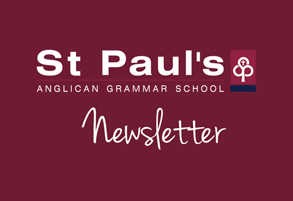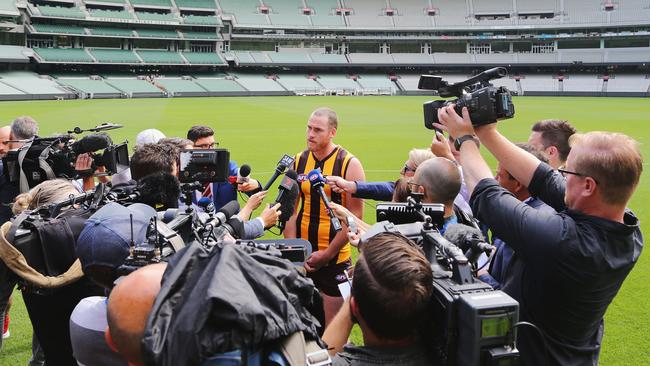In this issue
Careers News
What’s On:
• Warragul Secondary School
• Warragul Junior School
• Traralgon Secondary School
• Traralgon Junior School


CAREERS NEWS
I hope you have all had a restful break and are re-energised for another school year. I am looking forward to this year and hearing about all the exciting ideas that you bring to our conversations. Some of you already know that I get very passionate about helping you work …
CAREERS NEWS
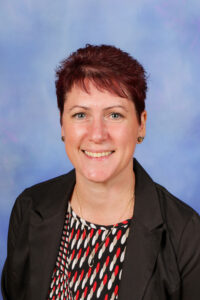
I hope you have all had a restful break and are re-energised for another school year. I am looking forward to this year and hearing about all the exciting ideas that you bring to our conversations. Some of you already know that I get very passionate about helping you work out a pathway for the future and I cannot wait to meet students and hear their stories.
The idea of planning for the future can cause anxiety and uncertainty for some students and that is normal. School has been such a large part of a young person’s life journey that it can be hard to imagine life outside of that. My role is to walk you through these conversations and run through what options are available and how you can get there. Many students and families do not know where to start which is why talking to me is of huge benefit to you. I can show you fantastic resources to get you started and give you the confidence to research on your own. A great place to start is to have conversations with your family and friends and to take notice of what their careers involve. Ask them questions about why they chose that role and what they wanted to do once they finished school. You would be surprised at what people have achieved in their careers and the journeys that you can take once you find the right starting point.
“Teachers can open the door, but you must enter it yourself.” – Chinese proverb
Sarah Luck
Head of Careers
sluck@stpaulsags.vic.edu.au
University News

Geospatial Science at RMIT
Starting from 2024, Geospatial Science will now be available as part of the Bachelor of Science program as a major. This change presents a valuable opportunity for students to expand their knowledge and skills in this captivating field without the need to pursue a separate degree. Students who elect to do this major will delve into the fascinating realm of maps and spatial analysis, dive into satellite imagery and laser sensors, GPS technology, geographic information systems (GIS), digital twins, virtual reality, robots and artificial intelligence. Students will use the skills they acquire in mapping and spatial data analysis to contribute towards UN sustainable development goals.
Visit Bachelor of Science – Geospatial Sciences major to find out more.
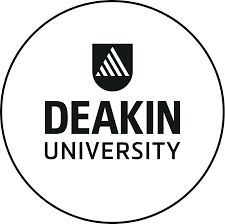
News from Deakin University
What is it like to work in economics
What do you think of when someone tells you they are an economist? Is it all spreadsheets and complicated math equations? The truth is so much broader than you might expect. While econometricians, like those working for the big banks, make up one facet of the world of economics, there is a whole world out there for economics graduates, says Deakin graduate Ranya Shahwan, Executive Director at WorkSafe. “Economics can take you to a number of places. You can combine it with international relations, politics, law. You can merge it with a whole range of fields and it will set you up so well for your career.”
Fellow Deakin graduate Emily Jackson is a Principal Advisor for NBN. She says her interest in economics came by accident when she dropped a subject at school and replaced it with economics. “It was so relevant to everything that was happening in the world around me,” she says. “I also found that it was really interesting how economics could be applied to so many different questions and problems.”
Emily’s advice to those considering economics is to not be put off by the maths element in the first and second year of studies. “If maths is not your strong point, stick with it because most economists are not working as econometricians and looking at spreadsheets all day,” she says. “They don’t necessarily have ‘economist’ in their title either.”
She also encourages students and early graduates to be open to opportunities that they might not expect. “It is easy to be put off because your career path may not be clear, but there are economists in every field and in a lot of roles within those sectors that you might not think of,” she says.
Interested in studying Economics at Deakin? Browse Deakin Bachelor of Commerce
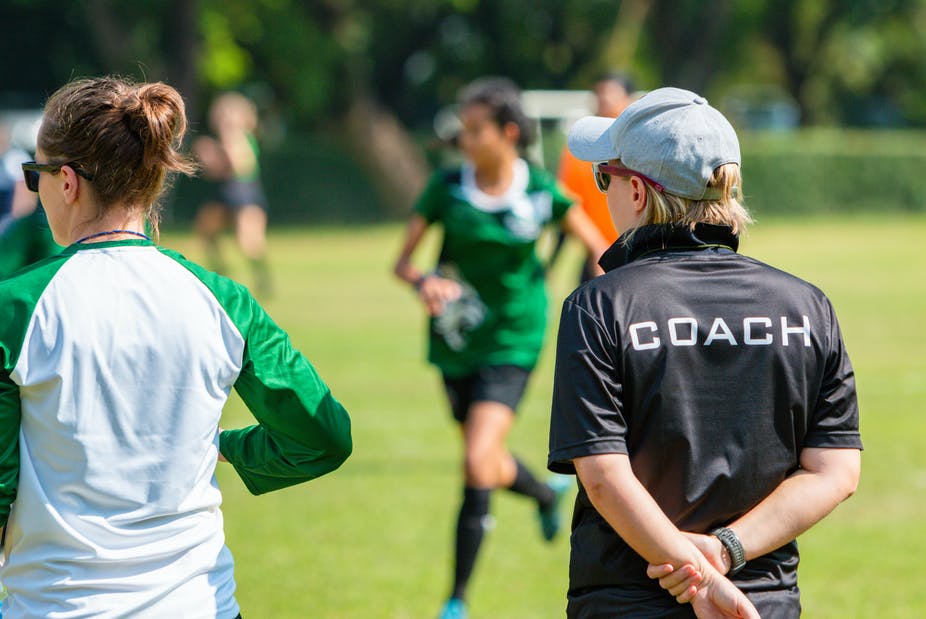 New Major: Sport Coaching and Coaching Ecosystems
New Major: Sport Coaching and Coaching Ecosystems
Commencing in 2024, Deakin’s School of Exercise and Nutrition Sciences, the number one Sport Science school in the world,* is excited to announce a new major offering from Trimester 1, 2024: Sport Coaching and Coaching Ecosystems. Students of the Bachelor of Exercise and Sport Science or Bachelor of Exercise and Sport Science – Advanced (Honours) will have the opportunity to undertake this dynamic major and explore the multifaceted role of coaches within the sports industry.
As well as the essential skills of effective coaching, students will also gain a deep understanding of the coach’s function as an integral connector within a complex network that includes athletes, sport scientists and organisational staff. Graduates will be equipped to navigate the intricacies of modern sports coaching, fostering success for athletes and organisations alike. With employment for sport coaches, instructors and officials projected to grow 9.8% by 2026,^ now is the perfect time to pursue a future in this exciting industry.
*Shanghai Ranking’s Global Ranking of Sport Science Schools and Departments 2021 and 2022
^2021 Employment Projections – for the five years to November 2026, Australian Government, Jobs and Skills Australia
Focus on Sport Journalism Major
Students keen on journalism, with a particular focus on Sport Journalism, are advised that this specialisation is available as a major or minor through the Bachelor of Arts degree. This major will take students beyond the game to the broader business and legal and ethical issues associated with sports. Students will learn a combination of practical journalistic and production skills across all news media platforms, from print to podcasts and video and the web, with studies in sport management to understand the sport system and the social and cultural impacts of sport and issues relating to governance.
Find out more at Bachelor of Arts – Sports Journalism major

New Bachelor of International Relations
The Faculty of Arts has introduced a new course in 2024 – the Bachelor of International Relations at the Clayton campus. This three-year specialist degree, delivered at the Clayton campus, focuses on the study of power, governance, conflict and cooperation.
An international study tour option is available as well as access to internships, the Global Immersion Guarantee and progression to the fast-tracked Master’s option. Students can take units from one of five streams with the option to complete two specialist streams to further develop their knowledge.
The specialist streams are:
- Peace, Conflict and Security
- Policy and Governance
- Comparative Politics
- Development, Rights and Gender
- Climate Futures
The VCE prerequisites are: Units 3 and 4: a study score of at least 27 in English as an Additional Language (EAL) or at least 25 in English other than EAL. The ATAR for 2024 is 75.60.
Events
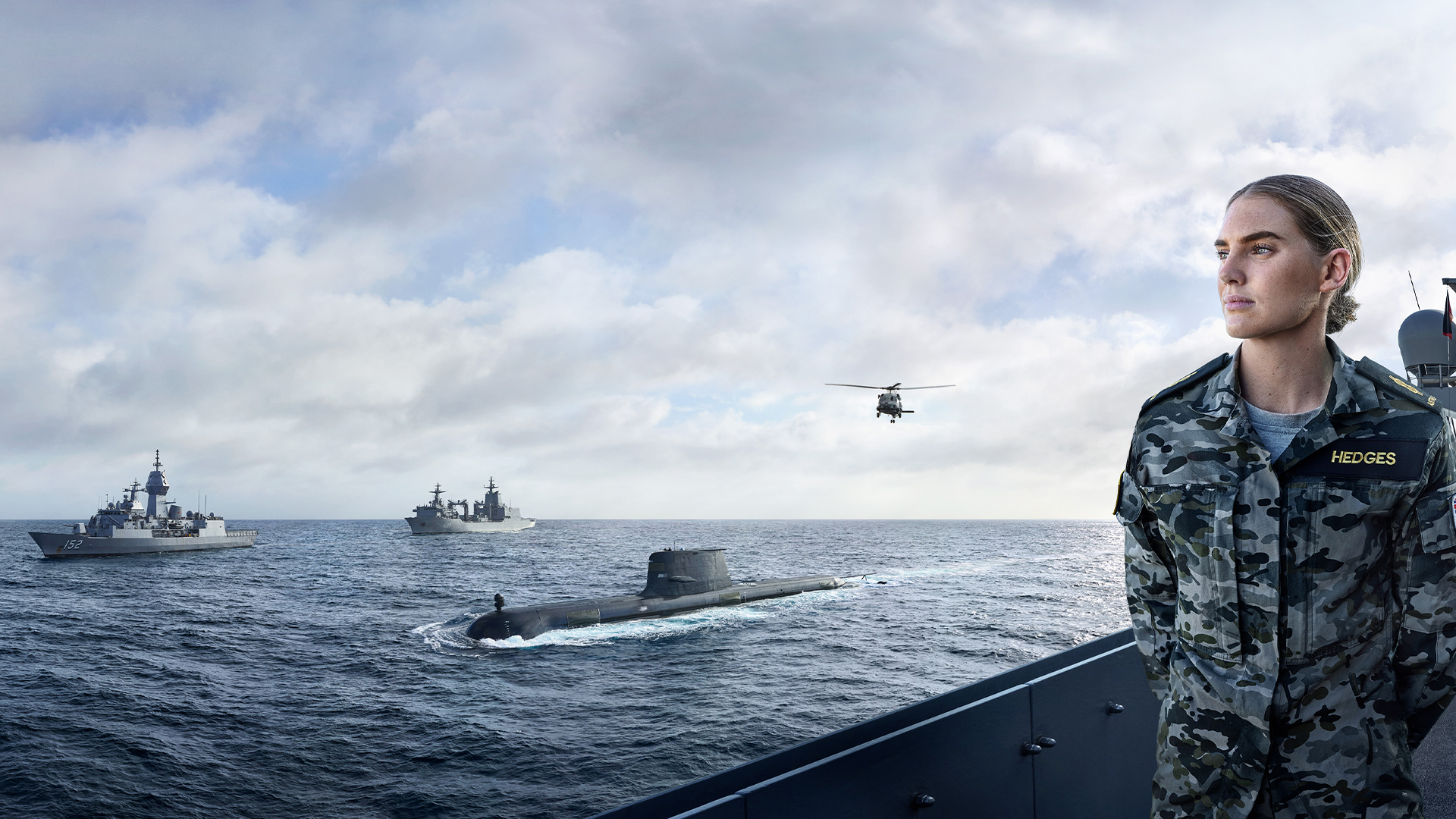
HMAS Cerberus Open Day
Sunday 3 March, 9:00 am – 4:00 pm
This is an exciting opportunity for students to learn more about what life is like in the Australian Defence Force.
On the day, attendees will meet and hear from current serving Navy personnel in leadership, trade, communications, IT and intelligence roles. Attending the HMAS Cerberus Open Day will allow students to learn about what opportunities and unique experiences are available to them with a career in the Navy.
The event is free to attend with detailed information to follow in the coming months.
HMAS Cerberus, Main Entrance, Sheean Avenue, Cerberus.
Register at HMAS Cerberus Open Day

Charles Sturt Explore Day
5 – 26 March
Are you in Years 10, 11 or 12? Then Explore Day is your chance to check out what life at Charles Sturt University is like.
Keen to check out where you will be staying? Take a look at the accommodation, chat with students and get the lowdown from lecturers. There is even a free lunch and a swag bag of goodies. But the best bit about Explore Day? It is all about you! Pick which interactive session/s interests you, book your spot and then get set for some hands-on learning and a whole lot of fun.
Each of the Explore Day campuses will run different sessions on everything from arts to vet science, so there is lots for you to explore.
Visit Charles Sturt Explore Day to find out more.
 Victorian Careers and Employment Expo
Victorian Careers and Employment Expo
14–16 March
Victorian Careers and Employment Expo will be held at the Melbourne Showgrounds. The Expo will showcase over 130 organisations and employers with career opportunities for all ages. Visitor entry is free.
The event is for school students, parents, teachers, graduates, job seekers, people looking for courses and workers seeking new opportunities.
Find out more
Careers That Make a Difference
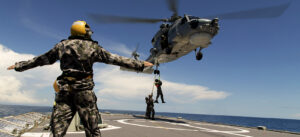 Careers in Aviation in the Navy
Careers in Aviation in the Navy
Helicopters are critical to Navy operations, delivering supplies, personnel, resources and defensive capability. Pilots fly sophisticated aircraft such as the MH-60R and EC135 Helicopters and are complemented in the cockpit by helicopter mission commanders who oversee navigation and weapon systems. Experience some of the world’s most technologically advanced helicopters, choosing from a variety of exciting roles in the cockpit, in the workshop or in support.
Browse Navy – Aviation Information to watch useful videos and check out Navy – Aviation Jobs to gain an insight into the various jobs on offer.

Nuclear-Powered Submarine Student Pathways
The Australian Government is investing $128.5 million to support 4,001 commencing Commonwealth Supported Places (CSPs) from 2024 to 2027.
Growing a qualified and experienced STEM workforce to support Australia’s nuclear-powered submarine enterprise is a national priority. The scale of work required to support the enterprise will be unlike any previous shipbuilding program in Australian history and will deliver career and job opportunities for generations. These additional places will develop a pipeline of highly-skilled STEM graduates who will strengthen Australia’s sovereign capabilities.
In Victoria, the following two universities were allocated places in relevant STEM areas for 2024:
| Tertiary Provider | Places allocated |
| RMIT University | 426 |
| The University of Melbourne | 300 |
Students are encouraged to browse Nuclear-Powered Submarine Student Pathways to find out more about this initiative, all the tertiary institutions that have been allocated places, and read through the FAQs too.
Note: The University of Melbourne very recently introduced its Science (Nuclear-Powered Submarine Student Pathways) course through VTAC. The Bachelor of Science (Nuclear-Powered Submarine Student Pathways) provides the opportunity for students to undertake studies that meet the future Science workforce needs of the Australian Submarine Agency. Students who graduate from the Bachelor of Science (Nuclear-Powered Submarine Student Pathways) may choose to enrol in the Masters of Science in Chemistry, Industrial Chemistry, Mathematics and Statistics, Data Science or Physics.
Students are encouraged to browse Bachelor of Science.
The Australian Government is also offering STEM cadetships to eligible participants, comprising 60 paid work placement days (approximately $12,000 per annum), reimbursement for books and resources up to $1,000, a $3,000 bursary, mentorships and career opportunities in Defence.
Eligibility to apply requires applicants to:
- be an Australian citizen
- be enrolled in a relevant STEM degree
- have already completed at least 12 months of the degree at the time of the application
- must still have at least 12 months of the course to complete at the time of the cadetship program commencement.
Vocational Education
Did you know that university isn’t your only option after leaving school? Vocational education is a great way to get you skilled and ready for work, and is often faster than traditional university pathways. Read about some of the vocational pathways available to you, from school to the end of your career.
What is vocational education?
Vocational education focuses on teaching specific skills and knowledge required for a particular job or role. Much of the learning is hands-on and practical, and provides you with a direct route to a specific career or industry.
Lots of people still hold the belief that vocational education is only for trades, but that could not be further from the truth! There are courses available in nearly every single industry, from health to technology, design to business and hospitality to environment.
So what are some of the pathways you can take with vocational education?
School to vocational education
Many vocational courses have no prerequisites for enrolment, meaning you can start no matter what your results are or which subjects you study. In fact, in some cases you can even study vocational subjects and courses while you are still at school.
Want to start working instead? You could also get paid while you learn by doing an apprenticeship or traineeship, which combines part-time work and vocational education.
Vocational education to university
Obtaining a vocational qualification can also be a great pathway to university if you do not meet the entry requirements straight out of school. Many universities will accept a vocational qualification for entry into some courses.
One benefit is that doing a vocational course first is a great way to get a feel for what tertiary study is like. By the time you start your university course, you will already have well-developed study skills and know what to expect.
Another benefit is that your vocational qualification can allow you to start working in a relevant field while you study at university part-time. For example, if you already have a vocational qualification in allied health, you can work in a hospital and gain practical experience while you study for your nursing degree.
Changing careers
If you work in the same job for a while but find yourself wanting something different, vocational education is a great way to get re-skilled into a brand-new career. Some courses can be completed in as little as six months, meaning you can jump into your new job sooner.
And if you want to remain in the same industry or workplace, there are vocational qualifications that can help you climb the ladder into more advanced positions too. Sometimes your employer might even encourage you to upskill and pay the tuition fees on your behalf.
It does not matter how young or old you are – anyone can study a vocational qualification.
Is vocational education right for me?
Whether or not you choose to follow a vocational pathway comes down to your individual circumstances and preferences. If you are not sure yet, here are some questions to help narrow down your options:
- Do I prefer to learn by doing lots of reading and research, or would I rather learn through practical experience?
- If I already have a dream career in mind, is there a specific qualification I must earn before I can start work? If so, what is it?
- Do I want to start working straight away, or do I want to keep studying for a while?
- Do I have a fixed plan for my career, or am I more flexible and open to other options?
- How much am I willing to pay for a course, and how will I pay for it?
At the end of the day, the choice is yours – follow the pathway you are most comfortable and happy with, even if it might not be the one your parents or friends think you should do.
Find out more
Want to know more about your options beyond school? You can read heaps of other blogs here.

Pathology – a Pathway into the Healthcare Industry
Holmesglen offers the Certificate III in Pathology Collection as a five-month course and it is perfect for students looking to enter the health industry. Graduates go on to be a pathology collector, specimen collector or pathology team leader.
Students can also choose to go on to further studies in laboratory techniques studies, nursing or allied health courses.
Getting your first job
If you would like to look for a casual job and start working you will need a resume. Employers often have to sift through lots of job applications and they have neither the time nor inclination to read through lengthy essay-style resumes. So focus on creating a resume that’s simple and effective.
Your resume should include the following:
- Your name, age and contact details (address, contact phone number and email).
- Education – the name of your school and subjects you are studying (include results here, especially if they are exceptionally good).
- Previous experience (include any work experience placements or voluntary work).
- Your skills.
- Awards and achievements.
- A few of your hobbies and interests.
- References – it is a good idea to list one or two referees that you are happy for potential employers to contact.
For references, you can list former teachers, employers or mentors. You will need to check with them that they are happy with you using them as a reference first, then provide their name, position, company and contact details. Otherwise, you can just write “references available on request” – but still have some in mind and check they are fine with you giving out their details.
For further assistance in writing your resume come and see me or visit: Study Work Grow
You will also need a tax file number to start working and if you are planning on further study. Importantly, current Year 12 students are reminded that they cannot enrol in a CSP (Commonwealth Support Place) course at university without a Tax File Number, so it is worthwhile getting an application submitted early.
Visit Apply for a TFN
Scholarships
The Hansen Scholarship 2024
The Hansen Scholarship Program aspires to nurture and significantly expand the horizons of Australian students who may otherwise struggle to access a high-quality university education.
Each year the University of Melbourne recognises talented students from around Australia who have demonstrated resilience to adversity, and a commitment to supporting others. Through fully funded accommodation at Little Hall, tailored mentoring and extracurricular activities, and focused financial support, Hansen Scholars are equipped with the skills and knowledge to make an impact at Melbourne Uni and beyond. The scholarship is worth up to $108,000. Eligible applicants must be Australian or PR citizens, be on track to achieve a minimum ATAR of 90.00, and experience financial challenges, applicant for example of their family receives Centrelink benefits.
Selection is based on:
- Track record of academic excellence and a commitment to academic success in university studies.
- Demonstrated ability to achieve success in the face of adversity and overcome obstacles.
- Demonstrated ability to apply skills and strengths towards activities which benefit others.
- Demonstrated ability to work effectively in a team and lead those around you.
- Likelihood of thriving as a Hansen Scholar and actively contributing to the Hansen Scholarship Program.
Benefits of the scholarship include:
- Guaranteed accommodation at Little Hall, at no charge, for the standard full-time, three-year undergraduate degree.
- An allowance of up to $4000 per year for general living expenses for the standard full-time duration of the undergraduate degree.
- Access to a mentoring program, pastoral care, and development programs available to all students at Little Hall as well as a tailored program of mentoring and support exclusively for Hansen Scholars.
- A comprehensive and bespoke mentoring program will connect recipients to leaders in their chosen field, while program patron Jane Hansen AO will offer sponsorship and support.
Applications close on 3 April 2024.
Find out more, including answers to FAQs, information about the program patron and current Hansen Scholar profiles, at The Hansen Scholarship Program.
Crimson Access Opportunity
Crimson Access Opportunity provides high-achieving Year 12 students who need financial support to attend top US and UK universities with admissions consulting services for free.
Applications close 1 April
Travel and Tourism Courses

Travel and/or tourism courses are offered at a number of Victorian institutions. Some of these courses are listed below.
Students are encouraged to visit VTAC for a comprehensive list.
| UNIVERSITY | COURSE | MAJOR STUDIES IN 2024 |
| Holmesglen Institute | Certificate III in Tourism | Administration, book tourism products, communications, international airfares, lead tour groups, provide accommodation services, provide quotations, sell tourism products and services, source airfares and use reservations systems. |
| La Trobe University | Bachelor of Business (major in Tourism and Hospitality) | Tourism and hospitality. |
| Victoria University | Bachelor of Business (major in Tourism and Hospitality Management) | Accounting, Analytics, Banking and Finance, Business Analytics, Event Management, Financial Risk Management, Human Resource Management, Information Systems Management, International Trade, Management and Innovation, Marketing, Supply Chain and Logistics, Tourism and Hospitality Management. |
| Diploma of Travel and Tourism Management | Business, Hospitality, Tourism & Events. | |
| William Angliss Institute | Bachelor of Tourism | Designing for the Visitor Experience, Destination Concepts, Economics and Global Impacts, Financial Concepts, Innovation and Entrepreneurship, Introduction to Marketing, Introduction to the Tourism Industry, Management Fundamentals, Niche Tourism, People and Place, Planning for Tourism, Risk and Legal Issues, Strategy Change and Leadership, Taking Responsibility for Tourism and Hospitality, Tourism Attraction Management, Tourism Distribution Systems, Tourism Futures, Tourism Theories and Concepts, Visitor Services. |
| Bachelor of Tourism (Ecotourism) | Delivering Thematic Interpretation, Designing Thematic Interpretation, Designing for the Visitor Experience, Destination Concepts, Economics and Global Impacts, Financial Concepts, Innovation and Entrepreneurship, Interpret Natural Landscape, Introduction to Marketing, Introduction to the Tourism Industry, Management Fundamentals, People and Place, Risk and Legal Issues, Strategy Change and Leadership, Taking Responsibility for Tourism and Hospitality, Tourism Attraction Management, Tourism Distribution Systems, Tourism Futures, Tourism Theories and Concepts, Understanding Natural Landscapes, Visitor Services. | |
| Bachelor of Tourism (Marketing) | Designing for the Visitor Experience, Destination Concepts, Digital and Social Media in Tourism, Economics and Global Impacts, Financial Concepts, Innovation and Entrepreneurship, Introduction to Marketing, Introduction to the Tourism Industry, Management Fundamentals, People and Place, Risk and Legal Issues, Strategy Change and Leadership, Taking Responsibility for Tourism and Hospitality, Tourism Attraction Management, Tourism Distribution Systems, Tourism Market Research, Tourism Marketing Data and Analytics, Tourism Theories and Concepts, Tourist Behaviour, Visitor Services. | |
| Bachelor of Tourism and Hospitality Management | Current Issues in Tourism and Hospitality, Financial Analysis and Decision Making, Financial Concepts, Food and Beverage Knowledge, Food and Beverage Service Management, Human Resource Operation for the Services Industry, Innovation and Entrepreneurship, Introduction to the Tourism Industry, Management Fundamentals, Menu Design and Engineering, People and Place, Project Restaurant, Risk and Legal Issues, Strategy, Change and Leadership, Sustainable Procurement for the Hospitality and Tourism Industry, Taking Responsibility for Tourism and Hospitality, Tourism Attraction Management, Tourism Theories and Concepts, Wine Design. | |
| Associate Degree in Tourism | Destination Concepts, Economics and Global Impacts, Financial Concepts, Introduction to Marketing, Introduction to the Tourism Industry, Management Fundamentals, Niche Tourism, People and Place, Risk and Legal Issues, Tourism Attraction Management, Tourism Distribution Systems, Tourism Theories and Concepts, Visitor Services. | |
| Diploma of Travel and Tourism Management | Australian and International destination knowledge, Tour guiding, business relationships, computer reservations, conflict and diversity, finance and budgeting, leading and managing people, selling and booking. |

World University Rankings 2024 | Times Higher Education (THE)
The Times Higher Education World University Rankings 2024 include 1,904 universities across 108 countries and regions. Below are the top 20 universities in Australia.
| Rank | University |
| 37 | University of Melbourne |
| 54 | Monash University |
| 60 | The University of Sydney |
| 67 | Australian National University |
| 70 | The University of Queensland |
| 84 | UNSW Sydney |
| =111 | University of Adelaide |
| =143 | The University of Western Australia |
| 148 | University of Technology Sydney |
| 180 | Macquarie University |
| 199 | Queensland University of Technology |
| 201-250 | Curtin University |
| 201-250 | University of Newcastle |
| 201-250 | Swinburne University of Technology |
| 201-250 | University of Wollongong |
| 251-300 | Deakin University |
| 251-300 | Griffith University |
| 251-300 | La Trobe University |
| 251-300 | RMIT University |
| 251-300 | University of Tasmania |
Visit World University Rankings 2024 | Times Higher Education (THE) to find out more.
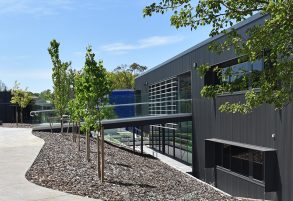
WHAT’S ON Warragul Secondary School
FEBRUARY 18 February Surf Trials, Phillip Island, 8:30 am to 11:00 am 19 February Presentation Ball Training (Girls role only), Warragul Secondary School Gymnasium, 3:20 …
WHAT’S ON Warragul Secondary School
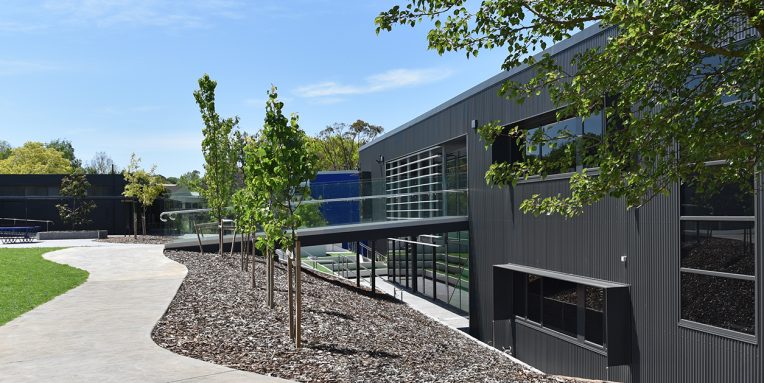
FEBRUARY
18 February Surf Trials, Phillip Island, 8:30 am to 11:00 am
19 February Presentation Ball Training (Girls role only), Warragul Secondary School Gymnasium, 3:20 pm to 5:15 pm
20 February Year 11 Healesville Sanctuary Excursion, Environmental Science students, 9:00 am to 3:10 pm
21 February House Swimming Carnival, Moe Outdoor Pool
22 February SEISA Summer Sport, Intermediate/Senior, Round 3
23 February Warragul Junior School Welcome Barbeque (Prefects and Year 9 Community Ambassadors assist), 5:00 pm to 7:00 pm
26 February Presentation Ball Training (Boys role only), Warragul Secondary School Gymnasium, 3:20 pm to 5:15 pm
27 February Dr Justin Coulson Live Webinar: “Breaking Point: Unpacking the Crisis in Youth Mental Health”, 8:00 pm
Register now: https://happyfamiliesfamilyeducation.ac-page.com/StPaulsAnglicanGrammarSchool
28 February SEISA Swim Training, Warragul Leisure Centre, 7:00 am to 8:00 am
East Timor Tour Meeting, Warragul Secondary School Year 9 Centre (top floor), 4:00 pm to 5:30 pm
29 February SEISA Summer Sport, Intermediate/Senior, Round 4
ST PAUL’S PARENT PRAYER GROUP
“Where two or three people gather in my name, I am there with them.” Matthew 18:20
The St Paul’s parent prayer group meets on the first Monday of each month during school terms. We try to keep the meeting brief (we are usually done by 9:45 am) and casual (younger children are most welcome). The group encompasses people both very comfortable with praying, as well as those newer to praying with others. Feel free to get in touch with any questions beforehand or just attend when you are able during the year.
Our next gathering is on Monday 4 March, at 9:00 am in the Prideaux Centre, Warragul Junior School
Contact: Sheryn Cutler 0417 158 937 or sheryn.cutler@gmail.com
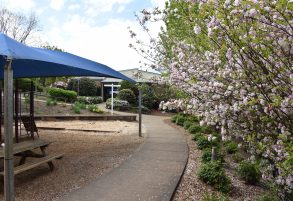
WHAT’S ON Warragul Junior School
FEBRUARY 21 February No Preps 23 February ELC and Junior School Family Welcome Barbeque, 5:00 pm 27 February Dr Justin Coulson Live Webinar: “Breaking Point: …
WHAT’S ON Warragul Junior School
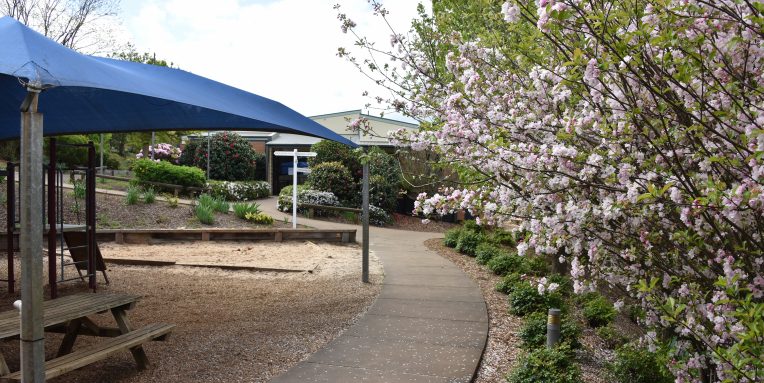
FEBRUARY
21 February No Preps
23 February ELC and Junior School Family Welcome Barbeque, 5:00 pm
27 February Dr Justin Coulson Live Webinar: “Breaking Point: Unpacking the Crisis in Youth Mental Health”, 8:00 pm
Register now: https://happyfamiliesfamilyeducation.ac-page.com/StPaulsAnglicanGrammarSchool
28 February No Preps
ELC and Junior School Parent Teacher Interviews, Day 1
29 February ELC and Junior School Parent Teacher Interviews, Day 2
MARCH
1 March Years 3 to 6 House Athletics Carnival
4 March Parent Prayer Group
11 March Labour Day Public Holiday
12 and 13 March Year 4 Camp
12 to 19 March NAPLAN
14 March Regional Swimming (selected students)
18 March District Athletics
20 to 22 March Year 5 Camp
22 March Prep Excursion to Farm World
28 March End of Term 1, 2:20 pm finish
ST PAUL’S PARENT PRAYER GROUP
“Where two or three people gather in my name, I am there with them.” Matthew 18:20
The St Paul’s parent prayer group meets on the first Monday of each month during school terms. We try to keep the meeting brief (we are usually done by 9:45 am) and casual (younger children are most welcome). The group encompasses people both very comfortable with praying, as well as those newer to praying with others. Feel free to get in touch with any questions beforehand or just attend when you are able during the year.
Our next gathering is on Monday 4 March, at 9:00 am in the Prideaux Centre, Warragul Junior School
Contact: Sheryn Cutler 0417 158 937 or sheryn.cutler@gmail.com
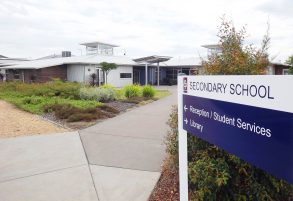
WHAT’S ON Traralgon Secondary School
FEBRUARY 21 February House Swimming Carnival 22 February SEISA Summer Sport, Intermediate/Senior, Round 3 27 February Dr Justin Coulson Live Webinar: “Breaking Point: Unpacking the …
WHAT’S ON Traralgon Secondary School
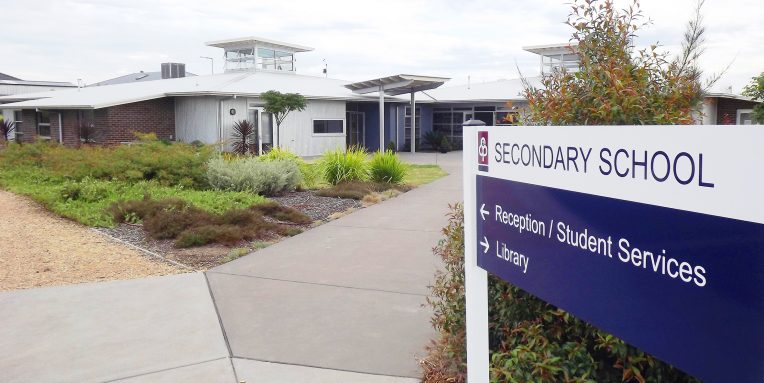
FEBRUARY
21 February House Swimming Carnival
22 February SEISA Summer Sport, Intermediate/Senior, Round 3
27 February Dr Justin Coulson Live Webinar: “Breaking Point: Unpacking the Crisis in Youth Mental Health”, 8:00 pm
Register now: https://happyfamiliesfamilyeducation.ac-page.com/StPaulsAnglicanGrammarSchool
MARCH
1 March Year 8 Author Visit
4 March House Athletics Carnival
5 March Year 7 and Year 10 Immunisations
Year 7 2025 Information Evening
7 March SEISA Summer Sport, Intermediate/Senior Round 4
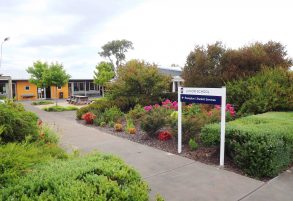
WHAT’S ON Traralgon Junior School
FEBRUARY 16 February Family Fun and Information Evening, 6:00 pm to 7:30 pm 20 February District Swimming (selected students) Year 5 Sovereign Hill Camp (four …
WHAT’S ON Traralgon Junior School
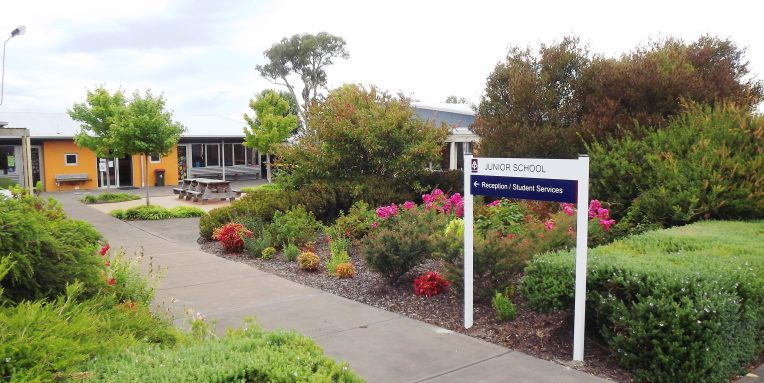
FEBRUARY
16 February Family Fun and Information Evening, 6:00 pm to 7:30 pm
20 February District Swimming (selected students)
Year 5 Sovereign Hill Camp (four days)
27 February Years 5 and 6 ySafe Cyber Safety Session
ySafe Parent Information Session
Dr Justin Coulson Live Webinar: “Breaking Point: Unpacking the Crisis in Youth Mental Health”, 8:00 pm
Register now: https://happyfamiliesfamilyeducation.ac-page.com/StPaulsAnglicanGrammarSchool
28 February Parent Student Teacher Interviews, 3:30 pm to 8:00 pm
29 February Parent Student Teacher Interviews, 3:30 pm to 6:00 pm
Questacon Science Circus Incursion
MARCH
1 March School’s Clean Up Australia Day
5 March Parent Volunteer Induction, 2:00 pm and 6:00 pm
20 March Athletics Carnival
12 March ELC to Year 2 Parent Evening: Learning to Read, 6:00 pm
Year 6 Urban Camp begins (four days)
11 March Labour Day Public Holiday
20 March Athletics Carnival
25 March Hoodie Up for Autism
26 March District Athletics (selected students)
27 March Classroom EXPOs
28 March Easter Service
FOSP Easter Hunt
End of Term 1, 2:20 pm finish



